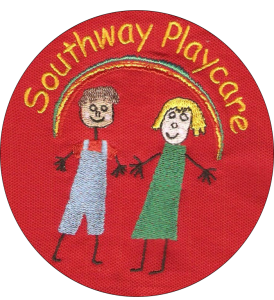Play Values
The child must be at the centre of everything we do , within our setting, and we should be flexible in meeting their individual needs.
Play should empower children allowing them to feel free to choose for themselves, go at their own pace and find their own solutions in their own way.
Adults` should be sensitive to their needs and only intervene when they are in danger, allowing them to make their own boundaries.
Children have a right to an environment which stimulates and provide opportunities so they challenge take risks, grow in confidence and self esteem.
Every child has the right to a safe and secure play environment both physically and personally.
Every child should be treated with respect, feel confident with staff and be valued individually and diversity is utmost.
Adult should always show a caring and considerate attitude towards them and their family.
Prejudice against disabilities, race, or sex will not be tolerated at all. Equal opportunities will be promoted at all times and we will seek to develop anti – discriminating practice and positive attitudes. Environments swill be accessible to all
Play will offer many opportunities for the to explore, and extend their knowledge and understanding of the wider world.
Play will encourage children to be sensitive to others, co-operate with them both individually and in groups.
We will work together with children staff parents carers and outside agencies to fulfil our expertise
Opportunities will be provided within the legal framework revelent to the Children`s Right, health safety and well being.
Play Policy
We recognise that – PLAY is what children and young people do when they follow their own ideas and interests, in their own way and for their own reasons. The main characteristics of PLAY are not content but mode. It is an approach to activity, not the activity itself and the way it is done is playful. For an activity to be playful the children’s behaviour must be:
FREELY CHOSEN– by the child. It can be offered by adults, but the child can choose whether or not they do it.
PERSONALLY DIRECTED – so that children make and amend the rules, structure and course of the activity.
DONE FOR ITS OWN SAKE– it occurs naturally, doesn’t rely on external motivation and is engrossing in itself without the need of an end product. If adults are present they are not intrusive so that the content and intent of PLAY is controlled by the child.
THE VISIBLE SIGNS OF PLAY-we recognise that PLAY is taking place through observation of
PLAY TYPES: identified through research. They often overlap in nature, form and content. Children and young people usually engage in more than one at a time and change from one to another rapidly.
PLAY CUES: verbal or physical signals that a child is entering into a spell of PLAY is called a play cycle
THE PURPOSE OF PLAY– we believe that in PLAY children can manipulate the world around in order to learn about it, the purpose of which is to adapt to its situations and challenges in order to thrive and grow. All children and young people need a place to play, to test themselves, take chances, to face challenges, explore, experiment with all that it contains, to run,jump,climb, build and move around without constraint, using their imagination and developing their social,emotional, physical, intellectual and creative skills.
Children need a varied and interesting environment which offers opportunities for all PLAY TYPES behaviours and moods. It should provide PLAY using the senses, playing with identity and with ideas and for play with elements.
THE PLAY ENVIRONMENT– we recognise that natural play spaces are being reduced and that the content of PLAY is restricted by industry, commerce, building, dumping of waste and rubbish, roads and traffic and fear of predators. Therefore it is necessary to create artificial spaces.
WE DO THIS THROUGH PROVIDING:
PLACE– a child – friendly environment that encourages difference and diversity and offers: freedom from hidden risk; freedom to range the whole environment and to access all that it contains; physical and emotional security; shelter, warmth and cool; spaces that can be modified and changed through the use of moveable resources; spaces that provide for and support feelings and moods that children bring with them or which occurs during their play.
PROPS -materials and equipment for all play types that stimulate and encourage exploration and experimentation that are available and accessible when children want to get them.
PEOPLE– competent and qualified playworkers, who understand PLAY, are keenly observant of and responsive to children’s PLAY CUES and needs and use their knowledge of play types, loose parts and the PLAY CYCLE to plan and provide for PLAY. They leave the content and intent of PLAY to children, wait to be invited to PLAY and organise only when children want it.
IN ADDITION WE:
Treat each child as an individual and work to meet their individual needs. Encourage children and young people to make their own decisions.
Work in accordance with:
i. The playwork Principles
ii. The UN Convention on the rights of the child
iii. The Charter for Children’s Play
iv. The Early Years Foundation Stage.

